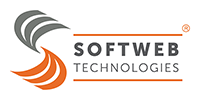ERP for production planning is a suite of applications designed to automate and streamline various business operations, from procurement to supply chain to sales. This software enhances productivity and efficiency across the entire organization, ultimately increasing revenues.
Efficient production planning is crucial for companies to meet customer demands, optimize resources, and maximize profitability.
Applied to production planning, ERP offers a comprehensive solution that enables companies to achieve operational excellence and Digital Transformation.
A robust ERP for production planning, like PACE360, offers remote access to all features through cloud deployment, supporting remote work and collaboration with round-the-clock support. It also helps you manage inventory more efficiently and provides 360-degree real-time visibility into your business, enabling data-driven decisions that promote business growth.
What is Production Planning?
Production planning involves developing strategies to allocate resources—such as employees, raw materials, finances, and workstations—to ensure timely production and order fulfillment without delays.
It’s crucial to accurately plan target management for production, sales, and stock levels, arriving at precise estimates.
In essence, production planning optimizes the manufacturing process to ensure maximum efficiency.
To ensure well-structured production plan is at place, ERP for Production Planning takes an important role. This ERP solution aids various sectors, including the steel, manufacturing, plastic, textile, and fasteners industries, in effectively planning their production.
Its superiority lies in its integration with other modules such as material management, sales, marketing, and dispatch management. The ERP module for production planning gathers information from these interconnected modules to create a comprehensive production plan.

Planning is then driven by customer-specific production advice and sales forecasts. Material requirement planning (MRP) is conducted based on machine capacity, availability, efficiency, raw material availability, and lead time, resulting in a feasible production quantity. A production plan is formulated to optimize resource utilization, encompassing raw materials and machine allocation.
Flexibility is provided to adjust production plans as needed, with options to modify input parameters, production priorities, or quantities based on fresh production advice. The production schedule is generated detailing inputs and outputs for each machine, facilitating efficient scheduling. Machine efficiency and utilization are analyzed to ensure optimal performance.
Upon plan finalization, the system automatically generates Material Requirement Schedules (MRS) and purchase requisitions. Additionally, process requisitions are generated for subcontracted processes, and quantities are reserved for production. Job orders for production are generated automatically, streamlining workflow. Daily production plans can be generated as needed, with the system offering extensive reporting capabilities related to production activities. Overall production management is seamlessly integrated within the PACE360, providing a comprehensive solution for operational excellence.
Features of ERP for Production Planning
Material Functionality
Production relies heavily on raw materials, provided by the material management and vendor management modules. These modules exchange information seamlessly. ERP software for production planning eliminates manual entries, enabling automatic entries. This automation reduces operational costs, ensures data accuracy, and eliminates errors.
Machines and Equipment
Machines and equipment work continuously for production and require regular maintenance. The module calculates machine downtime and maintenance time through system analysis, ensuring a steady production flow. Proper maintenance prevents mechanical problems that can disrupt production planning.
Routing
The routing feature identifies the necessary raw materials for production. It enables the ERP module to direct the appropriate raw materials by fixing paths, analyzing operation details, and setting time limits. This feature enhances supply chain smoothness, making production planning more successful.
Dispatching & Evaluation
When raw material orders are released, production activities commence. Materials, tools, and components are supplied to the operator, who assesses and executes production activities. Efficiency is key to production planning. The process ends with evaluation, identifying areas for improvement. This cycle continues with each production round.
Benefits of ERP for Production Planning
– Improved Organization: Ensures timely delivery of manufactured items.
– Digital Instructions: Operators receive digital instructions, and process automation reduces errors.
– Resource Optimization: Minimizes resource wastage by streamlining operations and activities.
– Reduced Operational Time: Automation decreases the time required for activities, minimizing human intervention.
– Automated Reporting: Generates various reports automatically, saving time and providing valuable insights.
– Maximum Output: Optimizes resource use, yielding maximum output within the expected time.
– Centralized Data Storage: Enables easy data access, providing a complete overview of inventory and replenishment needs.
– Workflow Improvements: Enhances industry workflow, with potential improvements observable.
Production Aspects
– Raw Material: Based on the Bill of Material (BOM).
– Consumables: Store materials, utilities (power/water), and manpower.
– Finished Goods: Increases FG/SFG stock.
– Production Breakdowns: Monitors machine breakdown details, downtime, and causes.
– Production Costing: Direct costing based on BOM and material consumed.
– Production Quality: Captures test results, produces test certificates, and analyzes quality over periods.
ERP for production planning is an excellent tool for industrial operations. Its integration with vendor management, material management, and other modules makes it a comprehensive solution for optimizing production processes. With ERP software for production planning, industries can achieve operational excellence and drive business growth.


